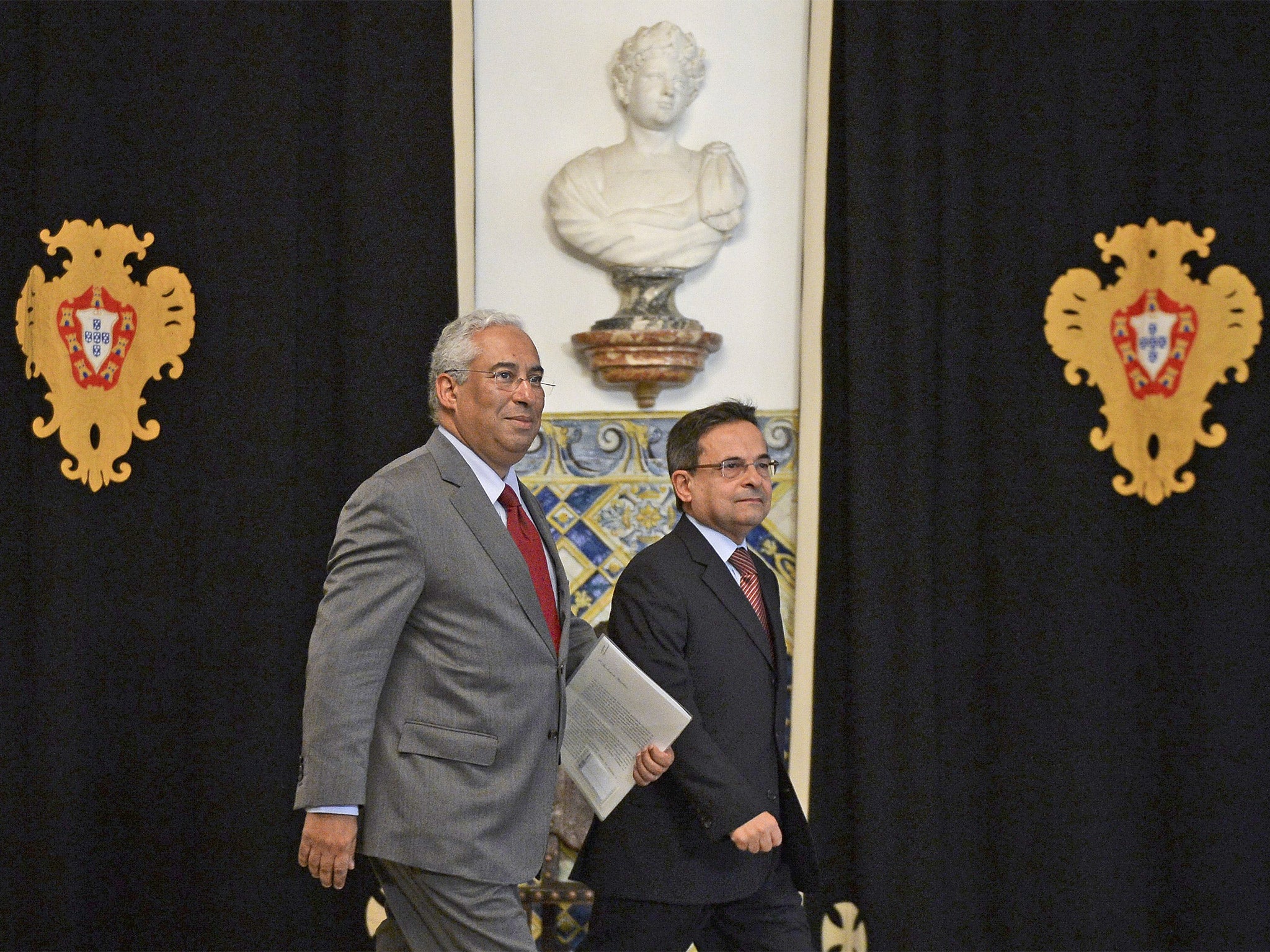Portugal government: Socialist anti-austerity party to take power - and rely on support from communists
Antonio Costa appointed Prime Minister after Portugal Ahead lost a confidence vote

Your support helps us to tell the story
From reproductive rights to climate change to Big Tech, The Independent is on the ground when the story is developing. Whether it's investigating the financials of Elon Musk's pro-Trump PAC or producing our latest documentary, 'The A Word', which shines a light on the American women fighting for reproductive rights, we know how important it is to parse out the facts from the messaging.
At such a critical moment in US history, we need reporters on the ground. Your donation allows us to keep sending journalists to speak to both sides of the story.
The Independent is trusted by Americans across the entire political spectrum. And unlike many other quality news outlets, we choose not to lock Americans out of our reporting and analysis with paywalls. We believe quality journalism should be available to everyone, paid for by those who can afford it.
Your support makes all the difference.Portugal has lurched to the left after President Aníbal Cavaco Silva appointed a Socialist government that campaigned on opposing austerity. It will rely on support from the Communist Party.
After two weeks of wrangling over what his administration might do, the Socialist Party leader Antonio Costa was asked to form a government. His appointment follows the collapse of the centre-right Portugal Ahead coalition, which lost a confidence motion last month, just 11 days after the general election. Neither the communists or the larger, radical, Left Bloc, are expected to join a formal coalition.
“After hearing political parties with parliamentary representation, the President has decided to nominate Antonio Costa for Prime Minister,” the President said in a statement.
He is believed to have sought assurances that Mr Costa would stick to public spending limits. Mr Costa had previously suggested that he could slow down cuts and accused his predecessor, Pedro Passos Coelho, of being “submissive” in his dealing with Brussels.
Join our commenting forum
Join thought-provoking conversations, follow other Independent readers and see their replies
Comments